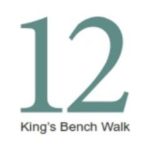Continue reading "Financial orders: A clear purpose?"
Financial orders: A clear purpose?

This was an appeal from a first instance judgment in proceedings relating to the estate of Dean Brunt (Dean), who tragically died aged 35 on 8 December 2007, when he was hit by a train. On 25 June 2008, the first defendant/appellant (Marlene), who was Dean’s mother, obtained letters of administration in relation to Dean’s estate on the basis that he died intestate.
Over ten years later, in November 2018, the claimant/respondent, the deceased’s uncle by marriage (Bob), started the proceedings, seeking to revoke the letters of administration issued to Marlene, on the basis that a pu...

Continue reading "Financial orders: A clear purpose?"

Continue reading "Disclosure: No place to hide"

Continue reading "Procedure: The last word?"
The mother and executor (V) of the deceased appealed against an order that a DNA sample from the deceased, held by a hospital, be tested against the respondent (D), to determine whether he was the son of the deceased. The deceased had suffered from an hereditary form of bowel cancer called Lynch Syndrome, and so D wanted to discover if he was at risk of this condition developing. V refused consent. D applied for a declaration of paternity under s55A Family Law Act 1986, in the context of which he sought an order for testing of the DNA sample collected by the hospital during the ...

Continue reading "Compromise agreements: No second chances"
The testatrix (T) died in 2004 leaving an adult daughter (C) from whom she had been estranged for 26 years. C had left home aged 17 to live with her boyfriend (B), of whom T disapproved. B later became C’s husband and they had five children. At the time of T’s death, C and her family lived in straitened financial circumstances: they lived in a house rented from a housing association, were reliant on benefits save for the husband’s intermittent work as a supporting actor and could not afford new household equipment or family holidays.
During the lifelong estrangement there had been...
Mr Davis employed Mr Wiggett in his building business from 2007 to 2011. According to Mr Wiggett, they had a common intention to purchase a flat, do it up and let it out. As he already had a mortgage, 68b Queen’s Road, Cheltenham (the flat) was bought in Mr Davis’ sole name for £137,500 in 2008 and, by virtue of their express agreement, on which he relied to his detriment by contributing to the purchase price and working on the property, Mr Wiggett claimed to be a beneficial co-owner under a common intention constructive trust and entitled to half of the equity. Mr Davis, on ...

Continue reading "Non-Disclosure: The Watergate effect"
88 Leyland Road, London (property) was purchased by the parties in January 1996 for approximately £135,000 using approximately £25,000 from their savings for the deposit and taking out a joint repayment mortgage for the balance with HSBC. It was registered in their names as joint tenants. Both contributed to the cost of installing double glazing, resurfacing the driveway and landscaping the garden. The appellant, who had acquired other buy-to-let properties in his sole name, told the respondent in early 2005 that he wanted to remortgage the property because of debt problems. The property...